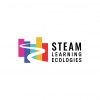STEAM Learning Ecologies (SLEs) is an EU-funded project (Horizon Europe) developing engaging open schooling-enabled science learning paths for all in learning continuums of formal and informal learning environments that are also focusing on inclusiveness.
The project will highlight the necessary conditions for bringing together all, rather than some, of the actors: formal, non-formal and informal education providers, as well as enterprises and the civil society – and giving all actors space and motivation to take initiative and central roles.
By building on the promising results of previous work, the project will propose a framework that generates opportunities for the creation of comprehensive partnerships in the form of interconnected knowledge ecosystems, in local communities able to foster improved science education for all citizens.
It will also initiate a concerted effort to make the evidence about the benefits of open schooling a driving force in European and national policymaking.
To achieve these, the project is introducing the powerful concept of “learning ecologies” as a vehicle for envisaging and realising impactful local open schooling partnerships as science learning continuums for all.
A Learning Ecology is the physical, social, and cultural context in which learning takes place. It has a physical dimension, which may include easy access to nature, science museums, advanced science programmes, various synergies, etc.
List of project partners
ASSOCIATION EUROPEENNE DES EXPOSITIONS SCIENTIFIQUES TECHNIQUES ET INDUSTRIELLES (ECSITE)
AGENZIA PER LA PROMOZIONE DELLA RICERCA EUROPEA (APRE)
NORGES TEKNISK-NATURVITENSKAPELIGE UNIVERSITET NTNU (NTNU)
HUMBOLDT-UNIVERSITAET ZU BERLIN (HUB)
MINISTRY FOR EDUCATION, SPORT, YOUTH, RESEARCH AND INNOVATION (DCM)

